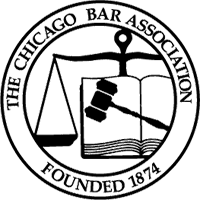Elder abuse is far more common than most people realize. Every year, millions of older adults across the U.S. suffer in silence from physical harm, emotional manipulation, neglect, and financial exploitation. Many never speak up. That’s why it’s important to know the warning signs of elder abuse.
Whether your loved one resides in a nursing home, receives in-home care, or is financially dependent on others, spotting abuse early could save their health, dignity, and possibly their life. In this guide, we’ll help you recognize the signs and symptoms of elderly abuse, understand why it often goes unnoticed, and help you take decisive legal action if you suspect your loved one is in danger.
What Is Elder Abuse?
Intentional or neglectful acts that harm an older adult are considered elder abuse. Elder abuse can take many forms, including:
- Physical abuse (hitting, restraining, or overmedicating)
- Emotional or psychological abuse (threats, humiliation, isolation)
- Neglect and abandonment (failure to provide care or essentials)
- Sexual abuse
- Financial exploitation
Each type of abuse is associated with specific red flags. Identifying these red flags can make the difference between prevention and prolonged suffering.
Warning Signs of Elder Abuse: What to Watch For
Below are the most common signs of abuse in elderly individuals, organized by type. These are the warning signs families and caregivers should never ignore.
Physical Abuse
Physical abuse is the most apparent form of elder abuse. However, abusive caregivers often attempt to explain away the signs of physical abuse. Be alert for injuries or behavioral changes that don’t align with the caregiver’s official story. Signs of physical elder abuse include:
- Bruises, black eyes, or welts
- Broken bones, fractures, or dislocations
- Cuts, punctures, or untreated injuries
- Signs of restraint (marks on wrists or ankles)
- Over- or under-medication
- Sudden behavioral shifts (fear, flinching, anxiety)
- Broken eyeglasses or personal items
- The caregiver refuses to allow private visits
If you notice one or more of these signs, take them seriously. Injuries, especially when paired with fear or secrecy, should prompt an immediate follow-up.
Emotional or Psychological Abuse
This type of abuse is subtle but equally destructive. It often takes the form of humiliation, threats, isolation, or manipulative behavior. Signs of emotional or psychological abuse in the elderly include:
- Depression, anxiety, or mood swings
- Withdrawal from family or friends
- Changes in sleep or eating habits
- Rocking, biting, or self-soothing behaviors
- Apologizing excessively
- A caregiver verbally threatening, belittling, or isolating the person
- The older adult says they’re being emotionally mistreated
If your loved one suddenly seems withdrawn, frightened, or overly submissive, that’s not just aging. It could be a sign of emotional abuse.
Neglect and Abandonment
Neglect occurs when caregivers fail to meet the basic physical and medical needs of an older adult. These failures often signal deeper abuse or institutional negligence. Older adults who are being neglected often exhibit the following symptoms:
- Dehydration or malnutrition
- Bedsores, poor hygiene, and soiled bedding
- Unattended medical needs
- Unsafe living conditions (e.g., no heat, broken appliances)
- Being left at a public place or care facility with no support
- Lack of food or clean clothes
- The senior reports being neglected or abandoned
No one deserves to live in degrading conditions. If a facility or caregiver isn’t meeting basic needs, it may be time for legal intervention.
Sexual Abuse
While rare, sexual abuse does occur, often against the most cognitively impaired and defenseless seniors. This abuse is typically hidden and requires vigilance to detect. Signs of elder sexual abuse include:
- Bruising around the breasts or genitals
- Unexplained infections or bleeding
- Sudden fear of being touched
- Blood on clothing or sheets
Any combination of these symptoms should be treated as a medical emergency and investigated immediately. Do not dismiss behavioral changes as simple “confusion.” These behavioral changes may indicate abuse.
Financial Abuse and Exploitation
Financial abuse is one of the fastest-growing forms of elder mistreatment. It often goes unnoticed until large sums are missing or legal documents have been altered. Signs of financial abuse in the elderly include:
- Sudden changes in bank accounts or practices
- Large, unexplained withdrawals or ATM usage
- Additional names added to bank accounts
- Abrupt changes in wills or legal documents
- Missing possessions or valuables
- Bills left unpaid despite adequate funds
- Forged signatures or altered checks
- New “relatives” or advisors claiming rights to assets
- Services are being billed but never delivered
- The elder reports money being taken or misused
If your loved one becomes confused about finances or starts making sudden changes to their accounts or documents, these are signs of elder financial abuse, and you should seek legal help right away
What to Do If You Suspect Elder Abuse
You don’t need to wait for “proof” to take action. If you’re seeing signs of elderly abuse, take the following steps immediately:
- Document everything: Take photos, keep written notes, and save bank statements or communications.
- Ask questions: Speak with your loved one in private. Offer compassion and reassurance.
- Report it: Contact Adult Protective Services (APS) or local law enforcement.
- Call a lawyer: Elder abuse is not just a moral failure. It’s often a crime. A skilled nursing home neglect and abuse lawyer can protect your loved one’s rights and hold abusers accountable.
The faster you act, the better the chance of preventing additional harm and building a strong legal case.
Elder Abuse FAQ
Why does elder abuse often go undetected?
Elder abuse often goes undetected because many victims stay silent out of fear, confusion, or shame. Others may not even realize they’re being abused, especially if they suffer from cognitive decline or live in isolation. That’s why family members and friends must stay vigilant. It often falls on those closest to the victim to spot the signs and speak up.
What are the most common signs and symptoms of elder abuse?
The most common signs and symptoms of elder abuse are unexplained injuries, depression, poor hygiene, sudden financial changes, and fear around caregivers are common red flags.
How can I tell if my elderly parent is being financially abused?
To tell if your elderly parent is being financially abused, look for strange bank activity, new “friends” involved in money matters, missing items, or sudden changes to wills or powers of attorney.
Should I wait until I’m sure abuse is happening?
No, you should not wait until you’re sure abuse is happening to report it. Abuse often escalates quickly. If something seems wrong, contact the authorities and a lawyer immediately.
Can I sue a nursing home for elder abuse?
Yes, you can sue a nursing home for elder abuse. If a facility is responsible for harm or negligence, you may be entitled to compensation through a lawsuit.
Speak Up. We’ll Help You Protect Your Loved One.
You don’t have to face this alone. If you suspect elder abuse, don’t delay. One phone call could save your loved one from further harm. Call Shea Law Group today for a free consultation. We’re available 24/7 and are standing by to help you pursue the correct course of legal action.








